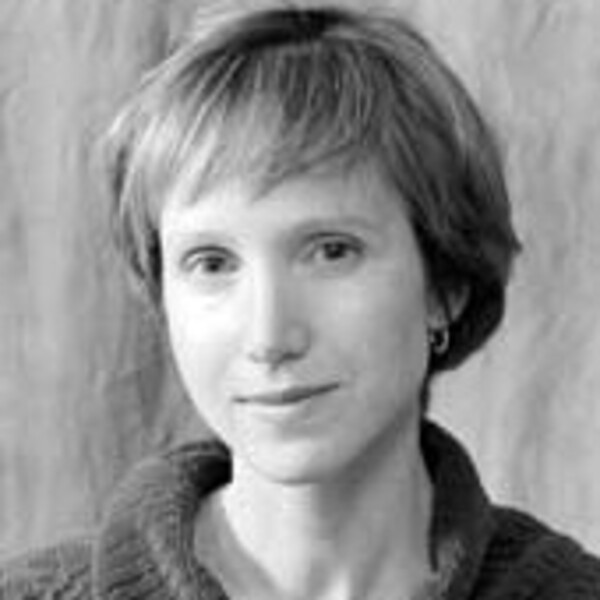Christine Bear
PhD

Research Institute, Senior Scientist, Molecular Structure & Function
University of Toronto, Professor, Physiology
Research Synopsis
Research Interests: Electrophysiology of epithelial cells: the role of ion conductance in epithelium secretory responses and volume regulation.
Keywords: Cystic Fibrosis, chloride channels, respiratory epithelium, CFTR, ABC superfamily of membrane proteins; channels and transporters; epithelial transport; chemistry and biology; animal models; major disease causing mutant; modifier genes; amino acid transporter; infection and inflammatory; motor proteins; genome wide association studies; pluripotent cells; innate immune response.
Detailed Description:
We have several goals for our Cystic Fibrosis research work. We are using high-precision instrumentation (including fluorescence and electrophysiology) to understand how the normal CFTR protein works as a molecular machine to mediate chloride flux and hence salt and water across the cell surface of airway cells- the major tissue affected in CF disease.
Detailed, mechanistic studies of mutant CFTR proteins reveal how mutations (such as deltaF508 and G551D) cause the CFTR protein to malfunction and also provide insights into potential “repair” strategies.
Such strategies include the discovery of small molecules that bind the mutant CFTR protein to induce it to work more like the normal CFTR protein. Such small molecules are called mutant CFTR “modulators”. Our goal is to identify “CFTR modulators” that have the potential to become drugs that will enhance the quality of life of patients with Cystic Fibrosis and will be cost effective.
Large scale genomics studies emphasize the variability in lung and intestinal disease amongst CF patients, even amongst patients with the identical CFTR mutations. We are working with geneticists and clinical researchers to determine what other non-CFTR genes account for such patient-to-patient variability and explain why one patient may exhibit “milder” disease than another. Identifying the role of such “modifying genes” will inform the development of new therapies that could work like a “modifier gene” to lessen disease severity. Such therapies are being tested in cell cultures models and in mice.
Finally, we are working with stem cell biologists such as James Ellis and Janet Rossant to develop patient specific lung cell culture system from small skin cell samples. We anticipate that such lung cell cultures will allow us and other researchers to determine which drug or drug combination will be most effective for each patient.
METHODS USED:
Cell and tissue culture: Hippocampal cells, epithelial cells.
Procedures: EEG, electrophysiology, Elisa, gene expression analysis, in vitro electrophysiology, mass spectrometry, patch clamp, proteomics, qRT-PCR, RT-PCR, siRNA, voltage clamp, western blot, protein purification.
EQUIPMENT USED:
Amplifier, analytical balances, benchtop centrifuge, blotting apparatus, culture hood, culture incubators, departmental beta and gamma counters, digidata, dissecting microscope, electrophysiology rig, FPLC, gel apparatus, HPLC, infusion apparatus, low and high-speed centrifuge, micropipette puller, nanodrop, plate reader, pressure osmometer, real-time/thermocycler, setups for electropherosis, stimulator, stirrer/hot plate, water baths.
PRESENT TRAINEES:
Paul Eckford (PDF)
Stan Pasyk (PhD Candidate, Biochemistry)
Steve Molinski (PhD Candidate, Biochemistry)
Samuel Ahmadi (PhD Candidate, Physiology)
Stephanie Chin (PhD Candidate, Biochemistry)
PRESENT COLLABORATIONS:
Within the Department of Physiology:
Steffen-Sebastian Bolz
Pat Brubaker
Felix Ratjen
Outside the Department of Physiology:
Roman Melnyk, Biochemistry
Daniela Rotin, Biochemistry
James Ellis, Molecular Genetics
Johanna Rommens, Molecular Genetics
Janet Rossant, Molecular Genetics
Igor Stajliar, Molecular Genetics
Shaf Keshavjee, Thoracic Surgery & Institute of Biomaterials and Biomedical Engineering University of Toronto
Appointments
Primary Status-Only
Hospital for Sick Children Research Institute
Biochemistry, Institute of Medical Science
Courses
Course Number: PSL1048, BCH422, BCH2028, BCH2027, BCH242, HMB411
Course Name:
